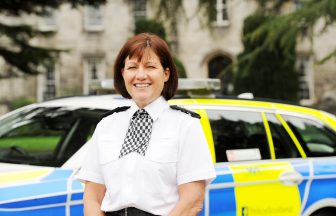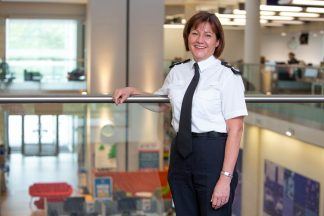Key Points
-
 Operation Branchform report on Peter Murrell will go to Crown within weeks, chief constable tells STV News
Operation Branchform report on Peter Murrell will go to Crown within weeks, chief constable tells STV News -
 Jo Farrell says Police Scotland is still institutionally racist and discriminatory but believes situation is improving
Jo Farrell says Police Scotland is still institutionally racist and discriminatory but believes situation is improving -
 Murder of dogwalker in Aberfeldy will be subject to external inquiry
Murder of dogwalker in Aberfeldy will be subject to external inquiry -
 Hate monster cartoon ‘had nothing to do with hate crime legislation’
Hate monster cartoon ‘had nothing to do with hate crime legislation’ -
 Mental health calls placing huge demand on police resources
Mental health calls placing huge demand on police resources -
 Farrell ‘hugely impressed’ by what she’s seen across Police Scotland
Farrell ‘hugely impressed’ by what she’s seen across Police Scotland
A report on the charges made against former SNP chief executive Peter Murrell will be sent to the Crown Office within weeks, the chief constable of Police Scotland has told STV News.
Murrell was charged last month in connection with embezzlement of SNP funds following a police investigation into the party’s finances.
Jo Farrell said Operation Branchform, which is investigating what happened to around £600,000 raised by the party for independence campaigning, is “not finished” and remains a live inquiry.
She did not comment on whether further charges will be brought in the long-running investigation but said a report will be sent to the Crown imminently in relation to the charges brought against Murrell.

The 59-year-old was taken into custody for questioning on April 18, more than a year after his first arrest, and subsequently charged with embezzling funds.
His wife, former first minister Nicola Sturgeon, and former party treasurer Colin Beattie have also been arrested and subsequently released without charge as part of the Operation Branchform investigation.
Institutional racism
Farrell gave a wide-ranging interview to STV News seven months after succeeding Sir Iain Livingstone as Police Scotland’s first-ever female chief constable.
Before he stepped down from the role, Livingstone admitted that Police Scotland is institutionally racist and sexist – a statement that Farrell said she agreed with upon taking on the job.
“It is (still the case that I believe Police Scotland is institutionally racist),” she said. “We’ve come a long way – cultural change takes time.
“I’m hugely impressed by the people I’ve met in this organisation – the vast, vast majority of them withhold the standards we would expect of them in policing and I’m very, very proud of what I see and very, very confident of what I see.
“We are in the consultation phase around new legislation involving standards in policing, so we’re in the midst of consultation with the justice committee and I think there are opportunities to strengthen some of that legislation, so we can give confidence to the public that our people operate to the highest standards.
“There are people that do not demonstrate the standards that we would expect and that the public would expect. We have a number of people under investigation at any one time. The new Bill will provide extra or modernise some of the arrangements around misconduct and investigation.”
Hate crime legislation
Another issue that has dominated headlines in recent months is the introduction of Scotland’s new hate crime legislation, which came into effect on April 1.
The Hate Crime and Public Order Act essentially takes the current law against the stirring up of racial hatred and extends that protection to other groups.
Those protected characteristics are disability, religion, sexual orientation, age, transgender identity and variations in sex characteristics.
However, unlike the 1986 UK law on race people must intend to stir up hatred against the other groups.
The legislation has raised concerns about a potential “chilling” effect on free speech, with prominent critics including author JK Rowling, podcaster Joe Rogan and Elon Musk, the owner of X – formerly Twitter.

The Act has also raised the ire of policing bodies, with the Scottish Police Federation (SPF) claiming training for officers is not enough and the Association of Scottish Police Superintendents (ASPS) raising concerns about the legislation being weaponised for political purposes.
“In the early weeks of the Hate Crime Bill, we saw a significant amount of online reporting,” Farrell said. “We anticipated that. As you know, the vast majority of it was anonymous reporting, so it did put some initial demand on us. I would say now, some weeks in, we have returned to the new norm in terms of levels of reporting.
“Policing – officers and police staff – are used to dealing with surges in demand – that is the complexity of the business (in which) we operate.”
Police Scotland’s “hate monster” campaign drew particular ire and was accused of stereotyping young working-class men.
But Farrell said the red cartoon character “had nothing to do with the hate crime legislation”.
She said: “It was a campaign from last year in relation to tackling hate and bias.
 Police Scotland
Police Scotland“Parliament legislated, modernised, refined, bringing together different pieces of legislation and our policing response is to take reports and investigate that.”
Farrell said hate crime reports had increased in line with the expanded range of protected characteristics but had tailed off from a deluge of mostly anonymous complaints when the new law was introduced in April.
She said: “I’ve been hugely impressed by the way in that initial few weeks we were able to surge resources, that we had people who were experts in this area and they were able to give confidence and support to other colleagues so that we had consistency in approach so that we had a real focus around proportionality and a human rights approach to the way we dealt with this.
“Every incident we deal with we make an assessment and part of that assessment is about immediacy, part of it is about harm. We’re not here to clamp down on free speech, we’re not here to limit people’s rights to free speech, there will be judgements that need to be made as this legislation beds down and is interpreted.”
Aberfeldy
Farrell confirmed that an external inquiry is being held into the shooting of a dog walker in Perthshire.
The body of 65-year-old Brian Low was discovered alongside his black Labrador at around 8.30am on Saturday, February 17 in the Pitillie area on the outskirts of Aberfeldy.
Mr Low’s death was initially assessed as being “non-suspicious and medical-related” but it was confirmed six days later that he had been fatally shot.
Detectives have conducted more than 100 interviews but have yet to catch the person responsible for murdering the retired groundskeeper.
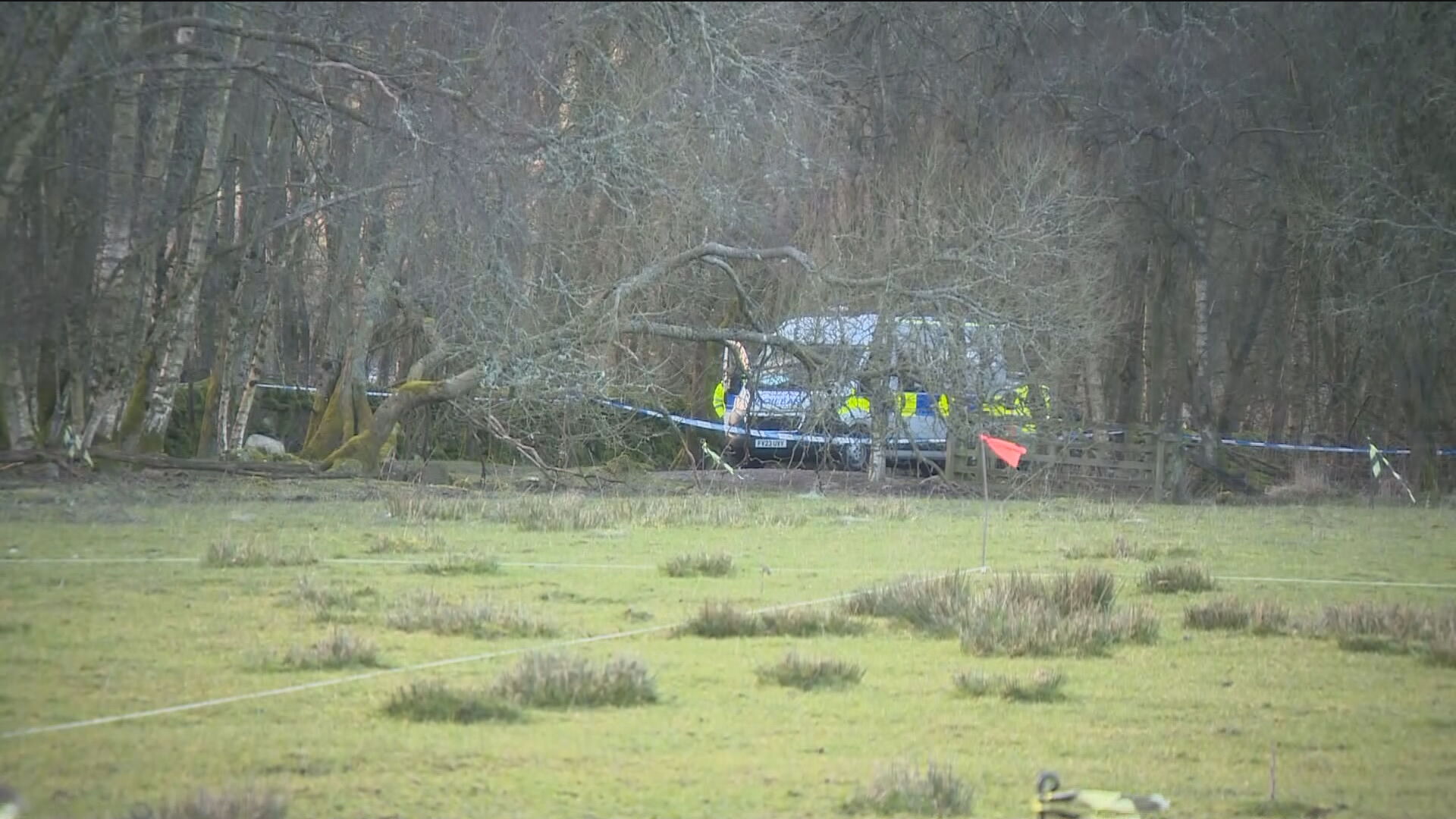 STV News
STV NewsFarrell said: “That is subject of an external inquiry, as the public would expect, as the family would expect.
“Quite clearly, that response is not what we wanted but it is subject to an inquiry, so we have to let that work its way through.”
Mental health
Farrell plans to reduce resources spent on 101 calls under a “proportionate response” model.
That’s due to be rolled out imminently across the country enabling a focus on “frontline policing” including probes into organised crime, while reports of fraud, cyber offences, and online sex abuse of children were expected to increase.
She also pledged to cut time spent on mental health calls which could be as frequent as three or four calls per minute on a busy day, compared to domestic abuse calls once every eight minutes.
Farrell said officers would take those in distress to “third party support” but described provisions as a “postcode lottery”.
She said the demands of mental health calls were consuming time equivalent to 600 police officers per year, out of a service of around 16,000.

Talking about what Police Scotland will look like this time next year, Farrell said: “We’ll be able to see clear evidence of the prioritisation of the frontline of policing, additional capability in areas of business that are expanding – online child abuse, cyber, fraud because we are not only policing in the here and now space, the physical space, we are clearly policing in the digital space
“I would want to see our footprint involvement around supporting people who are vulnerable to be more balanced and sitting with those agencies and those services that are best to respond.
“I’m always struck that nobody seems particularly outraged that the police are the responders to people who need support and are in crisis – that seems like an arrangement that the public should be saying ‘why are the police doing that? Why isn’t that social care, why isn’t that health?”
Priorities
Farrell took up the role of Police Scotland chief constable on October 9 last year.
She got off to an inauspicious start when she had to apologise in November for using a Police Scotland car to drive her home to England during Storm Babet.
Getting back on track, Farrell announced a key priority in December 2023, saying that Police Scotland will roll out body-worn cameras for officers this summer.
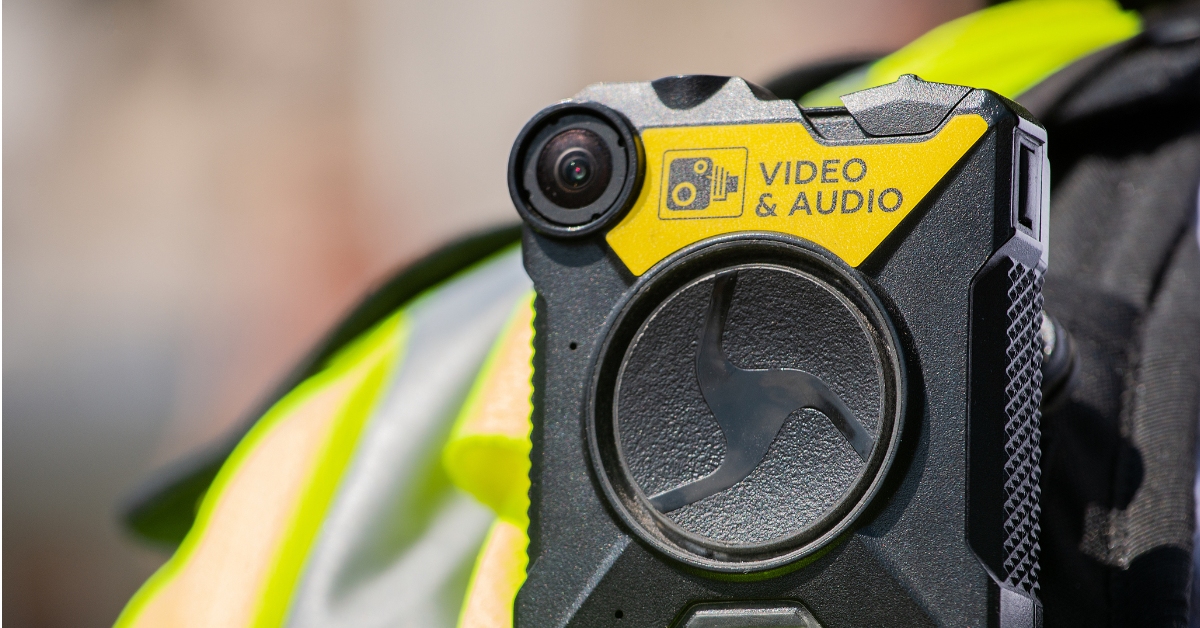 iStock
iStockShe said: “Body-worn (cameras) will roll out from the end of the summer.
“[They are] long overdue, and will be significant, both in terms of evidence capture and officer safety and in terms of trust and confidence of the public.
“That will be a two to three-year programme – some of that is around finance and some of it is the scale of the organisation.”
“I’m really focused in relation to frontline policing – I don’t just mean roads policing and response – I mean community policing, those people who investigate crime, everybody who has contact with the public, with victims, with witnesses, who are detectives, people who work in our command and control rooms; all of the people who have an impact.
“My priority is to make sure that the frontline is the best in terms of numbers and capacity that it can be.
“We are a public service, we are a national service, this is an organisation that is hugely proud of what it has achieved in its relatively short life.
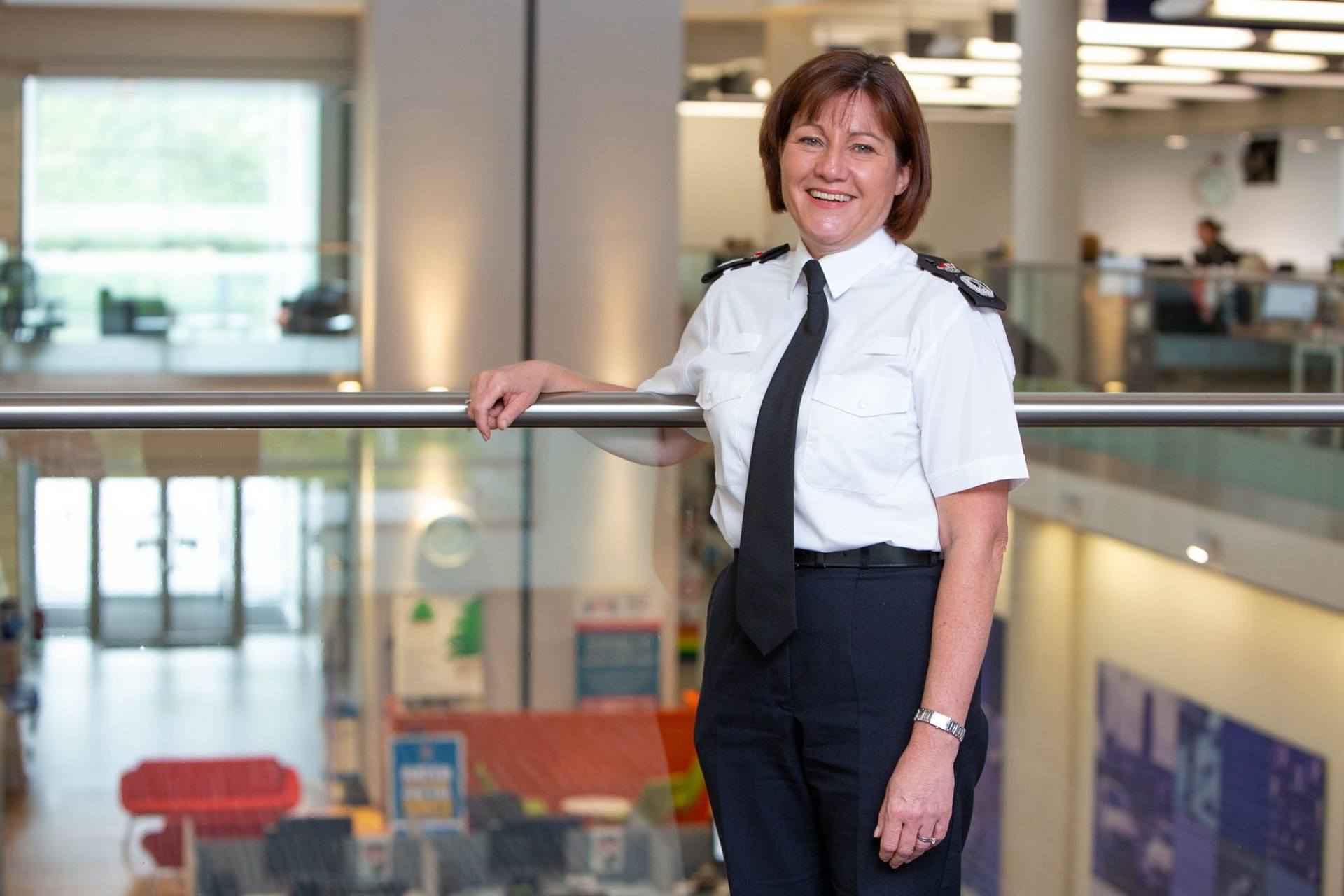 Durham Constabulary
Durham Constabulary“We are very visible. There’s a lot of scrutiny of us and, therefore, we are subject to opinion – and people have strong opinions.
“They have strong opinions around hate crime and strong opinions about other issues. With that visibility and us having to demonstrate to people what we do, how we’re held to account, inevitably it creates different opinions.
“I’ve been hugely impressed by what I’ve seen across the whole of Police Scotland – officers, staff. I’ve been all over the country – brilliant people, passionate about serving the public, passionate about ensuring that that service is the best that it can be and I’ve been blown over by the people that I’ve met and the enthusiasm that they have for their roles.
Reflecting on how much policing has changed over the decades, Farrell says “it’s just different”.
“Crime is different, 30 plus years (I’ve been a police officer), it’s just different,” she said. “We’re more diverse, the organisation is more diverse, so that’s a great thing, but we continue to evolve to meet the challenges that come at us in the way that crime develops, the way in which criminals exploit technology, and trying to always be ahead of that.”
But when she gets up in the morning, does Farrell still look forward to what the day is going to bring?
“Absolutely,” she replies.
Follow STV News on WhatsApp
Scan the QR code on your mobile device for all the latest news from around the country


